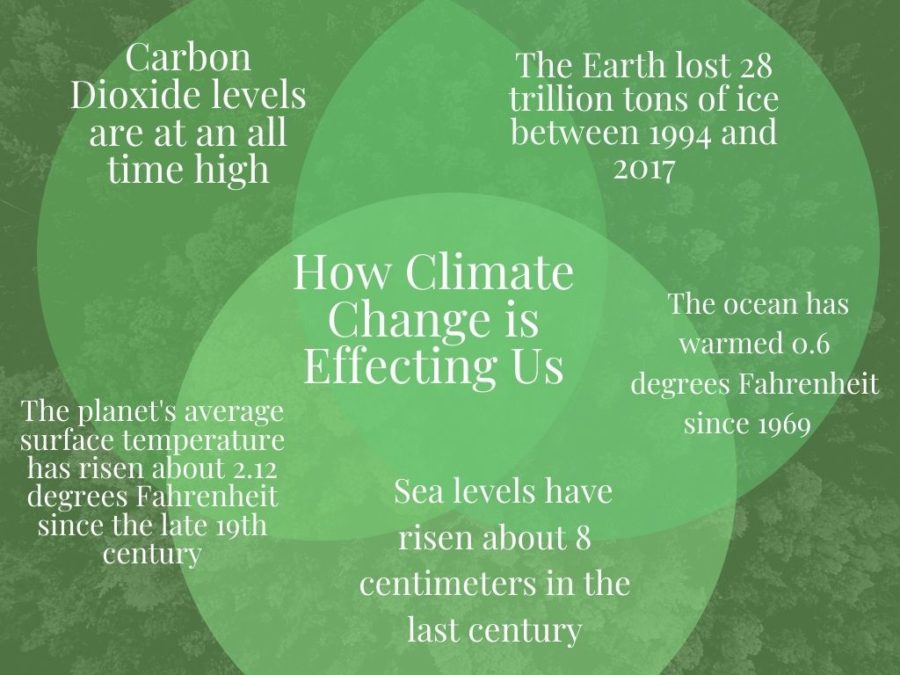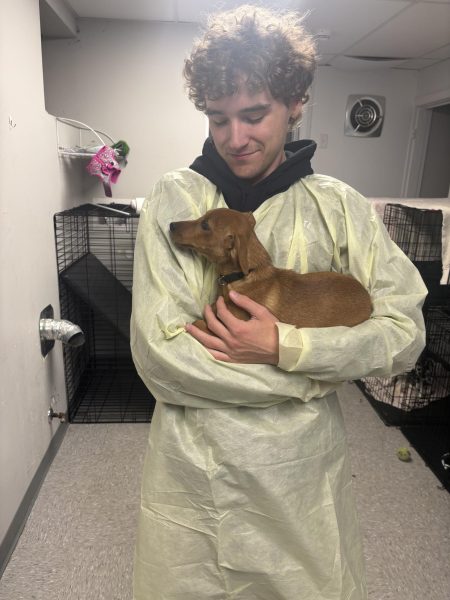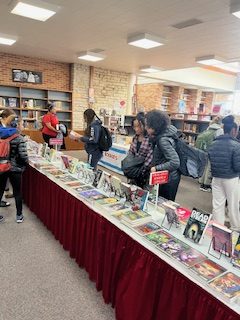How is Flossmoor Combating the Climate Change Crisis?
Statistics on how climate change is actively affecting us.
As most people know by now, climate change is a huge issue the world is facing today and is actively worsening. Nearly all of the increase in global temperature since 1950 has been caused by human activity, therefore changes need to be made to help protect the environment that we live in. So, you may be wondering, what is your community doing to help?
Flossmoor’s Green Commission is a committee of Flossmoor residents who meet once a month and take on roles within the community to help raise awareness for and combat climate change.
This is a group of environmentally conscious residents that want to help make Flossmoor more environmentally friendly as a whole. Some projects they’re currently working on include the Monarch Pledge, as well as annual events like Recyclepalooza and other zero-waste initiatives.
By far their most well known project is the Recyclepalooza event that happens every year. This event promotes sustainability and good recycling habits for the residents of Flossmoor. It also helps residents take action to help protect the environment at a household level.
“So every year we have this fantastic program where people can recycle microwaves, televisions, any type of electronics. They can recycle trophies, t-shirts, and old sports equipment,” stated Flossmoor Mayor Michelle Nelson. “It’s another way we encourage residents to be more environmentally conscious.”
The event takes place at Parker Junior High and each year it will see hundreds of cars lining up to recycle items they’ve wanted to get rid of. Residents from all throughout the community can volunteer to help move goods out of cars and make sure they get to the right place.
Aiding residents in recycling household items is just one way this team is making a change in the community.
The Green Commission has also recently taken on what they call the “Monarch pledge,” which is an agreement in the village of Flossmoor to support the reestablishment of monarch butterflies.
“There’s a lot of different steps for the village and the citizens of the village that can be taken to introduce milkweed and help monarch populations rebound,” stated Green Commission chairman Eric Turnquest. “The main idea is to introduce milkweed around the village and to educate people about the importance of monarch butterflies.”
The project is estimated to take one to two years to complete.
Aside from these independent projects, the Flossmoor Green Commission is also part of the Greenest Region Compact (GRC).
The GRC mostly focuses on enhancing sustainability efforts within greater Chicagoland communities through 49 high-level goals that they’ve established. Including, not only Flossmoor but Homewood as well, it has been adopted by 138 communities in the Chicagoland area.
The Green Commission’s efforts have been centered around educating the public and providing opportunities for individuals to practice recycling.
Turnquest explains that “There are things related to climate, energy, land use, water, waste management, as well as a whole series of things for this checklist that you’re supposed to do and kind of see what you can do better.” Representatives from each region consult on regularly-scheduled meetings to bring new perspectives and proposals to how to better the Chicagoland area.
Additionally, there are many zero-waste events that the Green Commission conducts throughout each year. They host block parties and tree plantings; they also create the Homewood-Flossmoor recycling guide.
“Another thing is probably trying to make those zero waste events, and trying to get people to bring reusable cups or aluminum cups that we can recycle,” Turnquest said. We want to encourage community members “to not have plastic containers but to have something that either is compostable or recyclable.”
The tasks that the Green Commission of Flossmoor takes on and executes are amazing. However, there are also things that any citizen can do at the household level to help the environment. For example, recycle more. Turnquest confirms; “A lot of people end up throwing things away that shouldn’t be thrown away and it all ends up in the salt waste stream.”
Herbicides and pesticides have also been proven to be very harmful to the environment. The synthetic chemicals found in these everyday products can also end up contaminating healthy soil and other vegetation. It’s also extremely toxic to birds, fish and insects.
Turnquest confirms; “The use of pesticides has been shown to reduce the bee population, and the bee population is very vital for the world. They’re native pollinators, and important for crops, so without these we’re kind of in trouble.”
Trying to reduce energy consumption, by using solar energy instead to maintain your household, would make a huge impact the environment. Any of these environmentally-friendly activities are extremely easy, and will collectively make a huge difference in our modern world.





